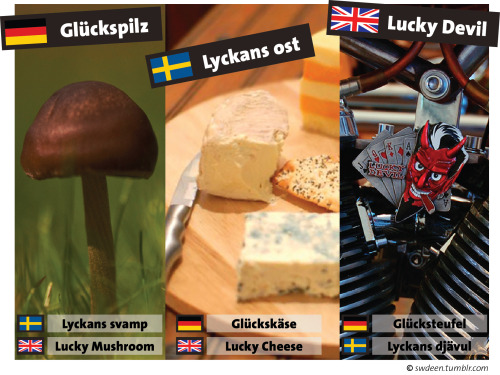#glück
Ich möchte diese Klischeeküsse in Fotoautomaten. Und die “geheimen” Fotos von mir, wenn ich nicht hinschaue. Ich will die wochenlangen Roadtrips mit den runtergelassenen Fenstern und meinen Füßen auf den Armaturenbrett. Ich möchte frühstücken mit nichts an, außer einem übergroßen T-Shirt. Ich möchte Serien-Marathons mit extra süßen Popcorn und Kuss-Pausen während dem Vorspann. Ich möchte am nächsten Morgen gemeinsame Duschen. Ich will deinen viel zu großen Pullover anhaben, während wir Morgens zusammen Kaffe holen.
Ich will Zeit, Hoffnung, Glück und Intimität.
Kein Plan, ob’s lieben ist, doch was es ist, ich hoff‘, dass es bleibt.
Provokationen bringen mich dazu Dinge zu sagen die ich gar nicht sagen will.
Der Tag, an dem du gingst, war der Tag, an dem ich lernte, dass auch ich einen Wert habe und ich mein eigenes Leben nicht hintenanstellen darf.
Vergiss niemals wer für dich da war, als alle anderen nur Ausreden hatten.
Lass mich dir eines sagen: Wenn ein Mensch nicht bleiben möchte, wenn ein Mensch dich respektlos behandelt, dann lass ihn gehen. Tust du das nicht, wird dich dieser Mensch emotional auslaugen, er wird dir alle positive Energie und Kraft, die du für dein Leben brauchst, nehmen und nichts zurücklassen.
“Mein Ziel? Endlich wieder glücklich sein.”
Es fühlt sich gerade so richtig an….
» mein Herz
This could be the start of something new…
» mein Herz
Vielleicht schaffen wir es ja in ein paar Tagen…
» mein Kopf
Als ich dich das erste Mal sah, wusste ich sofort, dass du etwas besonderes bist.
Three different phrases which always have the same meaning: A person who is lucky in something, whether the persons deserves it or not.
How did that come about?
The German word »Glückspilz« (Lucky Mushroom) is rooted in the growing of mushrooms. When mushrooms appear, they appear frequently and grow fast. Before the 19th Century the meaning of »Glückspilz« had a negative connotation and meant people that mushroomed very fast. These very fast growing people brought it to money and wealth fast.
The Swedish pendant to German mushrooms is a cheese. That is because in Sweden a brainless person was called »cheese« (»Ost«) in earlier times. If this person nevertheless was lucky without actively pursuing their luck, they were called »lucky cheese«.
The English pendant to the mushroom and cheese is no-one less than the »devil«. As in the German and Swedish examples it emphasizes the fact, that someone is lucky in a situation, whether the one deserves it or not. The abusive term »devil« is used because in earlier times people thought that one must have made a pact with the devil.
Photos:
- Mushroom: J. Ramsden https://flic.kr/p/a7jyie
- Cheese: ulterior epicure https://flic.kr/p/A7ZBb
- Devil: C. Lorenzo https://flic.kr/p/54Pyhx
References:
- http://en.wiktionary.org/wiki/devil’s_luck
- http://de.wiktionary.org/wiki/lyckans_ost#lyckans_ost_.28Schwedisch.29
- http://de.wiktionary.org/wiki/Glückspilz
There are a few more expressions with the same meaning:
Lucky dog, lucky child or even lucky bastard.
Do you have other examples?
Post link
Du strahlst heller als 1000 Monde
Ich kann dir nicht beschreiben, was du in mir auslöst, doch es ist ein unbeschreibliches Gefühl…
Charakter macht Schönheit aus…
Sag mir du brauchst mich,
so wie ich dich brauche….
Es gibt nur selten Beziehungen die ewig halten, doch in dir hab ich die Ewigkeit gefunden…
Vergiss nicht, du bist gut so, genau so wie du bist…
Ich schaue dir gerne beim Schlafen zu, es beruhigt mich und ich schätze das was ich habe…
Du bist der Mensch, mit dem ich alles schaffe, ich lasse dich nicht los…
Und eines Tages wirst du denken das ich dir nicht mehr Antworte…dabei bin ich längst nicht mehr am Leben…
Es Kommt nicht darauf an wie viele Menschen du an deiner Seite hast, sondern wie viele davon an dich glauben…
Wieso bekommt man die Konsequenzen ab wofür andere verantwortlich sind…
Und solltest du am Ende alleine da stehen, gibst es immer Jemanden der für dich da ist, du musst ihm nur deine Hand reichen…
Du bist niemals allein, denn es gibt Menschen die für immer in deinem Herzen sind…
Wir haben eine Beziehung!
Zwar eine komplizierte und
mit einer Entfernung….
Aber das ist doch trotzdem eine
Art Beziehung oder…
Zwei Menschen die sich Lieben !!
Die Entscheidung, meine Seele in deinen tiefen Augen zu verlieren, war keine Entscheidung, es war einfach mein Schicksal.
Du hast diesen “wow” Faktor…
Und heute vermisse ich dich wieder ein Stück mehr…
Nur wenn du es riskierst Gefühle zu zeigen, kannst du auch was dabei gewinnen…

